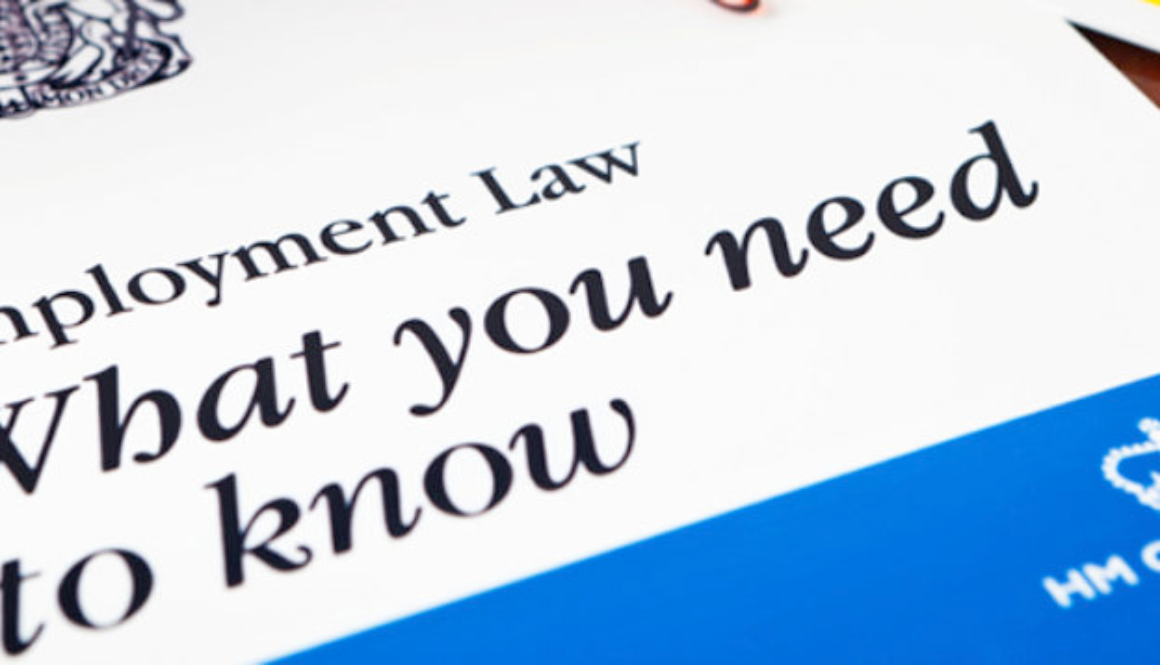Shanks v Lothian Health Board – Unfair dismissal: Reasonable dismissal – Consensus HR | Herts, Beds

Shanks v Lothian Health Board – Unfair dismissal: Reasonable dismissal | Consensus HR – Herts, Beds
Matthew P Chilcott, FCIPD, ACEL, Owner of Consensus HR comments: “This is a very interesting case in relation to ‘Reasonableness’ and the fact that when it comes to Law, HR is under Civil Law and the ‘balance of probabilities. Full details of the case can be read by Clicking Here but this press release by our Chartered Instituted explains clearly with a note for employers. In this case, the reasonableness of asking somebody to wear a mask was questioned by the employee who refused despite the employer asking them and all members of the team to wear one which was found to be reasonable. It subsequently resulted in the employee’s dismissal.
Note for employers.
This case is a reminder for employers about the need for reasonableness in decisions on dismissal, and the tests that will be applied to determine this. The EAT judgment made it clear that the focus when determining reasonableness should be on the requirement that the employer is imposing, and not on the employee’s particular views and beliefs on that subject. Where that requirement is to do an act which is lawful, and this is made clear to the employee along with the consequences of non-compliance, taking action up to and including dismissal for breach of that requirement is reasonable.
SUMMARY
When determining whether a requirement put in place by an employer that led to dismissal is reasonable, the tribunal must focus on the reasonableness of the requirement itself and whether the employee’s refusal to follow it was a deliberate and wilful contradiction of the terms of their employment.


LAW
The right not to be unfairly dismissed is found in section 94 of the Employment Rights Act 1996 (“ERA”). Section 98 ERA deals with the fairness of a dismissal and provides that employers must have both a fair reason, selected from a reason provided within that section (in this case, conduct) and have followed a reasonable process in dismissing the employee.
British Home Stores Ltd v Burchell [1980]
This case dealt with what an employer needs to establish before dismissing an employee in conduct cases, and led to what is widely known as the “Burchell test”. The test to be applied is as follows:
(a) The employer formed a belief in the employee’s misconduct
(b) They had grounds for that belief based on the investigation
(c) They had carried out as much investigation as was reasonable in the circumstances.
Iceland Frozen Foods Ltd v Jones [1983]
The EAT in this case gave us another test that should be applied, and it is known as the “range of reasonable responses” test. Under this, the tribunal must consider the reasonableness of the employer’s conduct, and not substitute that with what the members of the tribunal themselves would have decided. In many (though not all) cases there is a “band of reasonable responses” to the employee’s conduct within which one employer might reasonably take one view, and another quite reasonably take another. The tribunal must determine if the decision in question falls within or without that band.
Laws v London Chronicle (indicator Newspapers) Ltd [1959] tells us that for conduct to warrant a summary dismissal, it must be a deliberate and wilful contradiction of the contract terms.
FACTS
The claimant worked for the respondent as a catering assistant.
At the start of the covid pandemic, the respondent produced a risk assessment which instructed staff that where social distancing was not possible, a face mask should be worn. A meeting was later held where the catering team were informed that “masks are now part of uniform policy”. Workers were told unless they could provide an exemption letter from a doctor, they would have to wear a mask as instructed or not attend work.

This prompted the claimant to send their manager an email which included links to information regarding face masks. Within that email, the claimant stated that they believed that wearing a face mask would not stop the spread of the virus, and it would decrease their oxygen levels which could lead to hypoxia or severe hypoxia and cardiac arrest. They also claimed that requiring workers to wear a mask unless they could provide a doctor’s exemption letter was a “…massive breach of the Nolan principles, human rights, employment rights, constitutional rights and the common law”. Based on these beliefs, the claimant refused to wear their mask over both their nose and mouth as instructed and continued to attend work, despite being repeatedly told to wear the mask properly.
Eventually and after a number of months of this behaviour, the claimant was suspended from work. This, the claimant was told, was to de-escalate the situation in the kitchen (as the claimant’s colleagues regularly complained about the claimant and their failure to wear their mask properly), because the claimant posed a threat to themselves and others, and to protect the organisation from risk. The claimant was told they could return to work if they agreed to comply with the face mask rules.
An investigation took place into the claimant’s behaviour. They refused to attend any investigation meetings, and informed the respondent that until they provided supporting evidence as to the lawfulness of the mask wearing policy they would not comply. As a result, the claimant was invited to a disciplinary hearing. This found that the claimant had failed to wear a mask whilst at work as instructed and had not provided mitigation beyond not being provided with scientific evidence of the validity of mask wearing. Their refusal to wear the mask properly was deemed to be gross misconduct, and they were summarily dismissed.
The claimant appealed this dismissal. However, this did not proceed as the respondent instructed ACAS that they were not interested in further attempts to settle the dispute and the claimant deemed it no longer necessary to have the meeting as the respondent continued to fail to provide scientific evidence as to the lawfulness of its mask wearing policy.
Claims were brought for unfair dismissal and breach of contract.

EMPLOYMENT APPEAL TRIBUNAL (EAT)
The claimant argued that the requirement to wear a mask was not legitimately founded in regulations and guidance promulgated by the Scottish Government, and as a result was not a reasonable request and therefore the claimant’s conduct in refusing that request was not gross misconduct and the ET had erred in law in finding so.
The EAT did not uphold the claimant’s arguments. The ET had correctly identified that the requirement to wear a facemask was reasonable and that the claimant’s failure to follow that request was sufficient serious to warrant a summary dismissal. The ET had not erred in law and had correctly applied the relevant tests for reasonableness and unfair dismissal.
The appeal did not therefore succeed.
HR Inform – 7th December 2023
YOUR OUTSOURCED HUMAN RESOURCES DEPARTMENT.
For further information on any of the HR subjects we provide, please click the heading below:


